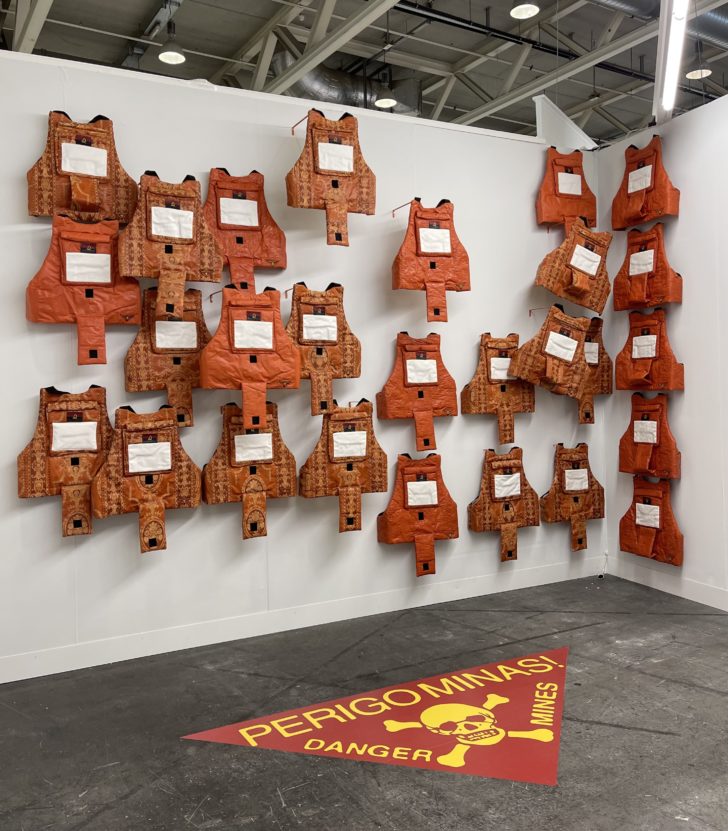IN HALO WE TRUST
IN HALO WE TRUST, 2021
This project is a work of investigation discoursing on the semiotic and factual presence of western institutions across the Globe, while discovering or revisiting information and un-archiving knowledge on the relations of coloniality between the West and African Nations since their independence. It probes into my research of a particular aspect of my recent project An Angolan Archive (2020): the semiotic presence of saviour entities in the context of post-conflict territories, such as post-colonial nation-states, as is the case of Angola.
It initially delves into the visual presence of ‘The Halo Trust’ in the country, and the popular understanding of the Halo Trust waist coat in our collective memory. During my research, I learnt that the most licensed image hashtagged #Angola, at the biggest world corporation for image licensing, was the photograph of Princess Diana walking through a minefield in Huambo, Central Angola in January 1997.
This visual piece of data has been continuously the most published and disseminated reference to the country in the international media. Such a discovery brought questions regarding the body, context, visual semiotic representations, and both historical and contemporary networks at play between alleged ex-colonies and colonial empires.
Who continuously writes history? To what extent can stories question history? How is the past written on the land, and how to read it? How can local experience and knowledge become data? Which bodies are allowed to write? Which bodies carry the memory? Which images appeal to people’s emotions? What discerns Diana and Sandra Tigica? – Sandra Tigica is the young Angolan girl, who lost her leg to a land mine and Princess Diana was looking to adopt before her death in August 1997.
Equally relevant questions arise when googling the relationship between the Princess and The Halo Trust from the UK, where Google advises that (paraphrasing) – as a result of geographical location of the IP address, some results might have been hidden, due to redundancy of information, among other reasons.
This project is not interested in directing guilt or shaming entities/people/institutions. It is rather keen to understand the networks at play in our collective memory and the problematics of such networks.
It therefore works towards inciting productive conversations about ways to navigate such collective societal memory, and having those discussions as a work in progress into healing, and moving forward productively instead of moving on.
By Sandra Poulson



